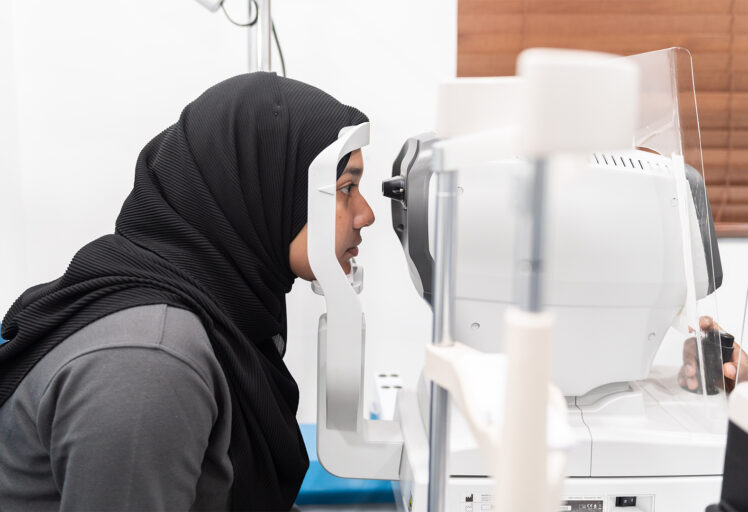
EyeCare Hospital Hulhumalé Annex
Our EyeCare Hospital Hulhumalé' Annex offers expert consultations, modern facilities, and comprehensive eye care services, all focused on maintaining and improving your vision
EyeCare Hospital Hulhumale' Annex
At EyeCare Hospital Hulhumale’ Annex, we combine advanced diagnostic technology with the warmth of personalized care. Our specialists take the time to understand your concerns, assess your unique needs, and provide clear guidance on how to protect and enhance your sight.
- EyeCare Hospital Hulhumale' Annex, 1st Floor, Lot 10420 Nirolhu Magu, Malé 23000
- +960 332 1026
- [email protected]
- Opening Hours: Sunday–Thursday: 8:30 AM – 11:00 PM | Friday: 4:00 PM – 10:00 PM
Our Services
Cataract Surgery
Restores clear vision by replacing the eye’s cloudy lens with a transparent artificial one
Learn moreAge-Related Macular Degeneration (ARMD) Treatment
Manages age-related macular degeneration to preserve central vision and slow disease progression
Learn moreDiabetic Retinopathy Treatment
Protects eyesight through timely intervention and management of diabetes-related retinal damage
Learn moreGlaucoma Treatment
Reduces eye pressure to prevent optic nerve damage and safeguard long-term vision
Learn moreKeratoconus Treatment
Treats corneal thinning with specialized procedures to improve vision and eye health
Learn moreMyopia Correction
Corrects nearsightedness for clearer distance vision and better visual comfort
Learn morePterygium Surgery
Safely removes abnormal eye tissue growth to restore comfort and appearance
Learn moreRetinal Detachment Surgery
Provides urgent surgical care to reattach the retina and protect against vision loss
Learn moreRetinopathy of Prematurity (ROP) Treatment
Specialized care for premature infants to prevent vision loss caused by abnormal retinal blood vessel growth
Learn moreBook an Appointment

Doctors and Specialists
Available Doctors
Our team of highly skilled and experienced ophthalmologists and optometrists is committed to delivering personalized, comprehensive eye care

Consultant Ophthalmologist
Dr. Khondker Liaquat Ali

Consultant Ophthalmologist
Dr. Nafeesa Abdul Latheef
Reviews & Testimonials
Frequently Asked Questions
A. Cataract surgery is typically not painful. Local anesthesia is used to numb the eye, and any discomfort during the procedure is minimal. Post-surgery, patients may experience mild irritation.
A. Cataract surgery is a common and generally safe procedure. It is considered serious in terms of the potential impact on vision but is routinely performed with a high success rate.
A. You should try to avoid blinking during cataract surgery, as it can disrupt the procedure. Surgeons use instruments to keep the eye open and steady throughout the surgery.
A. Some individuals with underlying eye conditions, severe medical problems, or unrealistic expectations may not be suitable candidates for cataract surgery.
A. Phacoemulsification, or "Phaco," is the most common and advanced cataract surgery method. It involves small incisions, quicker recovery, and improved outcomes, making it the preferred choice for most patients.


